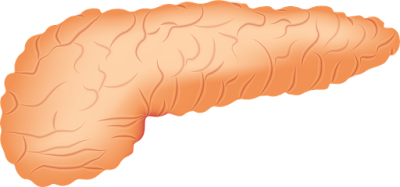Caring for your health
Preventive health
The basis for the prevention of health is aware of what is harmful to us, and protects health. Principles of a healthy life you need to follow yourself and decide what we eat, how to rest and how we succumb to addiction.
Remember! A very important part of preventive health check-ups are because it makes possible to detect early factor, which in the future may be a cause of the disease (eg, high blood glucose levels or hypertension).
Another important factor in the prevention of health is also supplementation (diet supplementation of nutrients, which it lacks).
Even how to properly compose a diet, it may not cover the full demand for certain ingredients, particularly vitamins, macro-and microelements.
Remember! Supplements are not used in order to cure the disease. Use them should primarily healthy people who depend on that to not get sick in the future. Therefore they are an integral part of a healthy lifestyle, such as exercise properly selected and well-balanced diet.
Taking care of your health, the total seeing his body. If it finds a disturbing change, then you need to contact your doctor.
Remember! Serious illness often do not cause any pain, which is usually forcing us to go to the doctor.
What to look out for?
Nipple
Disturbing symptoms:
- nodule;
- changes in the nipple (retraction, highlight, change color);
- changes in the skin (color change, non-healing ulcers);
- secretions from the gland (sometimes streaked with blood);
- enlarged lymph nodes in the armpit.
Prophylactic examinations:
- monthly self-breast after menstruation;
- 40 year old annual mammogram (possibly supplemented by ultrasound).
Lungs
Disturbing symptoms:
- cough that lasts more than 1 month;
- recurrent infections of the lower respiratory tract;
- shortness of breath;
- chest pain;
- blood in the sputum.
Prophylactic examinations:
- at least once every two years chest x-ray (people who smoke - once a year).
Reproductive organ of women
Disturbing symptoms:
- irregular menstrual periods;
- bleeding after sexual intercourse;
- blood tinted vaginal discharge, often with an unpleasant odor;
- pain in the lumbosacral.
Prophylactic examinations:
- reviewed once a year and download gynecological smear cervical smear tests;
- ultrasound examination of abdominal and vaginal.
Stomach
Disturbing symptoms:
- pain in the upper abdomen;
- lack of appetite;
- weight loss;
- bloody or coffee-grounds vomiting;
- tarry stools;
- dysphagia.
Prophylactic examinations:
- the presence of distressing symptoms need to perform gastroscopy with biopsy for histopathological examination and urease test in the direction of Helicobacter pylori.
The prostate gland
Disturbing symptoms:
- difficulty urinating (drops);
- frequent urination (even at night);
- stopping urination;
- back pain (often the first symptom of cancer, but already advanced).
Prophylactic examinations:
- once a year in men over 50 years of age examination of the prostate through the rectum (per rectum);
- determination of PSA in the serum at finding disturbing symptom;
- ultrasound examination of the abdomen.
The large intestine
Disturbing symptoms:
- change in bowel habits (diarrhea or constipation);
- inappropriate content in stool (mucus, blood);
- abdominal pain;
- bleeding from the rectum;
- anemia;
- weight loss.
Prophylactic examinations:
- the occurrence of distressing symptoms indicated the study: digital rectal examination, fecal occult blood, and colonoscopy.


Comments
Post a Comment